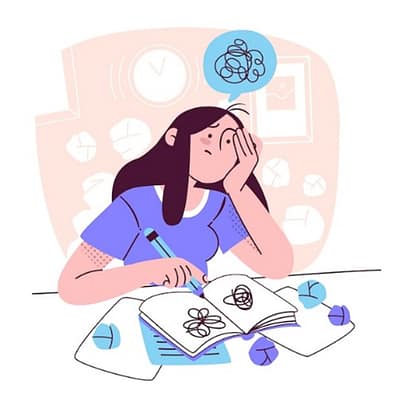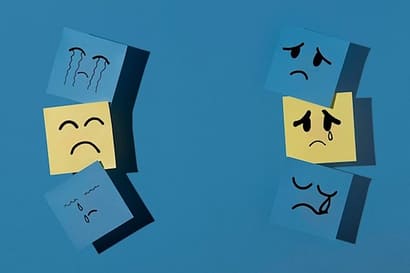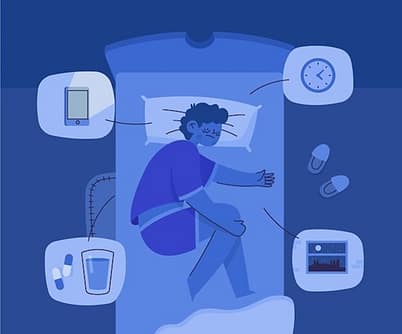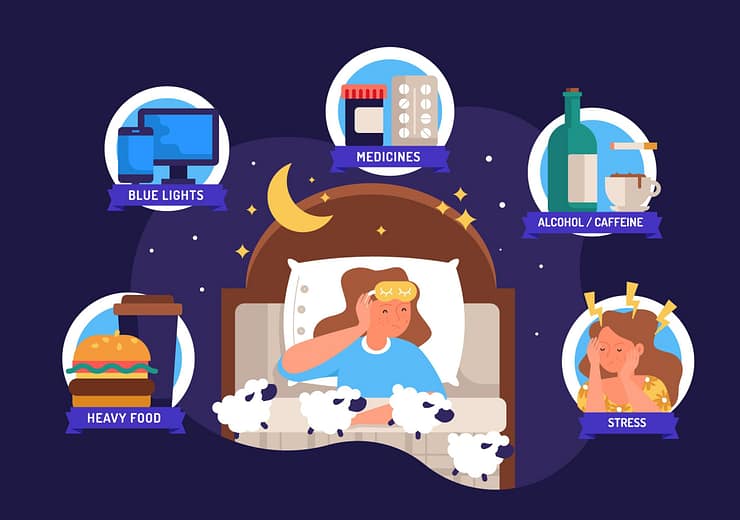The Hidden Costs of Living with OCD: What They Don’t Tell You

Introduction To Obsessive Compulsive Disorder (OCD) Challenges
At Jaslok Hospital, we are aware of the difficulties people living with OCD encounter and the value of recommending practical self-care techniques. Obsessive-Compulsive Disorder (OCD) is often portrayed as repetitive behaviors and anxious thoughts. However, beyond the surface, there exists a complex web of hidden costs of obsessive‐compulsive disorder that significantly impact the lives of individuals dealing with this mental health condition. Department of “Restorative and Regenerative medicine” (RNR Medicine) is the best for OCD treatment in India.
What Problems Do OCD Patients Have? Understanding the Impact of OCD
Obsessive-Compulsive Disorder (OCD) is a mental health condition characterized by persistent, unwanted, and intrusive thoughts (obsessions) and repetitive behaviors or mental acts (compulsions). These obsessions and compulsions can significantly impact an individual’s life, causing distress and interfering with daily functioning. These are the impacts of OCD suggested by TMS treatment doctors for OCD in Mumbai involves recognizing its effects on various aspects of a person’s life.
What problems do OCD patients have? Below is the list of OCD challenges various patients face:
Emotional Impact of OCD
The emotional toll of Obsessive-Compulsive Disorder (OCD) can be profound and deeply challenging for patients living with OCD. Department of RNR Medicines offers OCD treatment with deep TMS a form of TMS in Mumbai.
Individuals with OCD experience a range of intense emotions that stem from the obsessions and compulsions they struggle with.
Some of the emotional aspects commonly associated with OCD like:
- Anxiety,
- Fear,
- Guilt
- Shame,
- Frustration and Anger,
- Depression, etc.
Impact of OCD on Relationships and Social OCD Challenges

Some of the key social and relationship challenges include
- Communication Issues,
- Trust Issues,
- Family Dynamics,
- Social Anxiety, and
- Loneliness.
Financial Implications
While OCD primarily affects mental and emotional well-being, there can be financial costs of obsessive‐compulsive disorder associated with the disorder as well as
- Treatment Costs,
- Lost Productivity,
- Excessive Spending,
- OCD therapy Costs,
- Medication Costs
If you or someone you know is dealing with OCD and its financial implications, it’s advisable to seek support from the team of experts of Jaslok Hospital Department of RNR Medicines professionals who can guide managing both the psychological and practical aspects of the disorder.
Time and Energy Drain
Obsessive-Compulsive Disorder (OCD) takes a substantial toll on an individual’s time and energy. The incessant cycle of distressing obsessions and compulsive behaviors demands relentless attention and effort. The constant analysis of distressing thoughts, adds to the mental strain and occupies valuable mental space.
Occupational and Educational Consequences
The relentless nature of obsessions and compulsions often infiltrates both professional and academic spheres. In the workplace, time-consuming rituals and intrusive thoughts can disrupt concentration and productivity, potentially leading to
- Missed deadlines,
- Reduced job performance, and
- Strained relationships with colleagues
Seeking appropriate treatment from the Department of RNR Medicines like OCD treatment with deep TMS a form of TMS in Mumbai and support can mitigate these consequences.
Impact on Daily Routines
The Impact on the Daily Functioning cycle of distressing obsessions and compulsive behaviors can dominate every facet of life. Routine activities that most people take for granted become arduous tasks fraught with anxiety. This constant preoccupation diverts attention from essential tasks, eroding efficiency and productivity. The exhaustion resulting from managing obsessions and rituals can extend to disrupted sleep patterns, further undermining overall well-being.
Hidden Psychological Burdens
Hidden psychological burdens that often go unnoticed by others. While the outward symptoms involve distressing obsessions and compulsive rituals, the internal experience can be even more challenging. The constant barrage of intrusive thoughts creates a tumultuous inner world marked by fear, shame, and anxiety. Understanding and acknowledging these hidden psychological struggles is essential in fostering empathy and supporting
-
Anxiety and Constant Worry
At the heart of this disorder are the obsessions—distressing and intrusive thoughts that gnaw at the mind. These obsessions often center around fears of harm, contamination, or catastrophic events. The anxiety they evoke can be so intense that individuals feel compelled to perform rituals or mental acts to alleviate it.
-
Shame and Embarrassment
Shame and Embarrassment Individuals fear being judged for their distressing thoughts and find it challenging to disclose their rituals due to the potential for misunderstanding.
Acknowledging the impact of shame and embarrassment is vital in creating a supportive environment, where individuals can find solace, understanding, and guidance to navigate the OCD challenges.
Department of RNR Medicines made it easy now for targeting obsessive compulsive symptoms with deep TMS and dTMS) a form of TMS in Mumbai.
-
Difficulty Maintaining Relationships
Obsessive-compulsive disorder (OCD) often finds it difficult to maintain relationships due to their compulsive rituals and anxious thoughts. Their partners may feel neglected or frustrated by the amount of time and attention their OCD demands, leading to an strain & impact of OCD on relationships.
Treatment for OCD, including OCD therapy and medication, can help individuals address these challenges and improve their relationship satisfaction.
-
How Much Does OCD Treatment and OCD Therapy Cost?
The costs of obsessive‐compulsive disorder treatment and OCD therapy can vary depending on a variety of factors, including location, type of treatment, and insurance coverage.
Sessions for cognitive-behavioral therapy (CBT), a typical treatment for OCD, can cost anywhere from INR 500 to INR 2,500 on average. Due to their greater level of experience and the higher cost of living in certain areas, several specialty clinics in urban areas may demand higher prices.
The cost of care for OCD medication varies based on the kind of medication prescribed. The cost of generic drugs, which range from INR 200 to INR 1,000 per month, is typically lower. Branded drugs can be far more expensive; they may set you back as much as INR 3,000 to INR 5,000 a month.
Programs for inpatient treatment, which may be required in extreme circumstances, might be significantly more costly. Depending on the degree of care and repute of the facility, a stay at a specialized mental health center might cost anywhere from INR 30,000 to INR 1,00,000 per month. It’s crucial to keep in mind that these expenses can mount up, particularly for lengthy treatment programs.
OCD can be expensive to live with in terms of the time, effort, and money spent on treatment as well as the impact of OCD on relationships, employment prospects, and general quality of life. It is important for individuals with OCD to seek appropriate treatment and support in order to mitigate this hidden cost of care for OCD and improve their well-being.
Additionally, greater awareness and understanding of the realities of living with OCD can help reduce stigma and promote greater compassion and understanding for those affected.
For valuable insights on self-care for OCD and overall well-being, don’t miss our blog post:”OCD Self-Care Tips for Optimal Well-Being“
TMS Treatment Clinic For OCD In Mumbai
If you are looking for the best TMS treatment clinic for OCD In Mumbai which has all the qualities in one place Jaslok Hospital & Research Centre is the oldest multi-specialty, tertiary care hospital in the nation. With a team of more than 20 years of experience in various fields and the latest equipment, Jaslok Hospital has become the best TMS treatment hospital in Mumbai. Patients have rated the process as being highly efficient and painless. They can now feel and function better thanks to TMS therapy. The procedure is safe, tolerable, and relaxing. Many patients started feeling joy and motivated.











